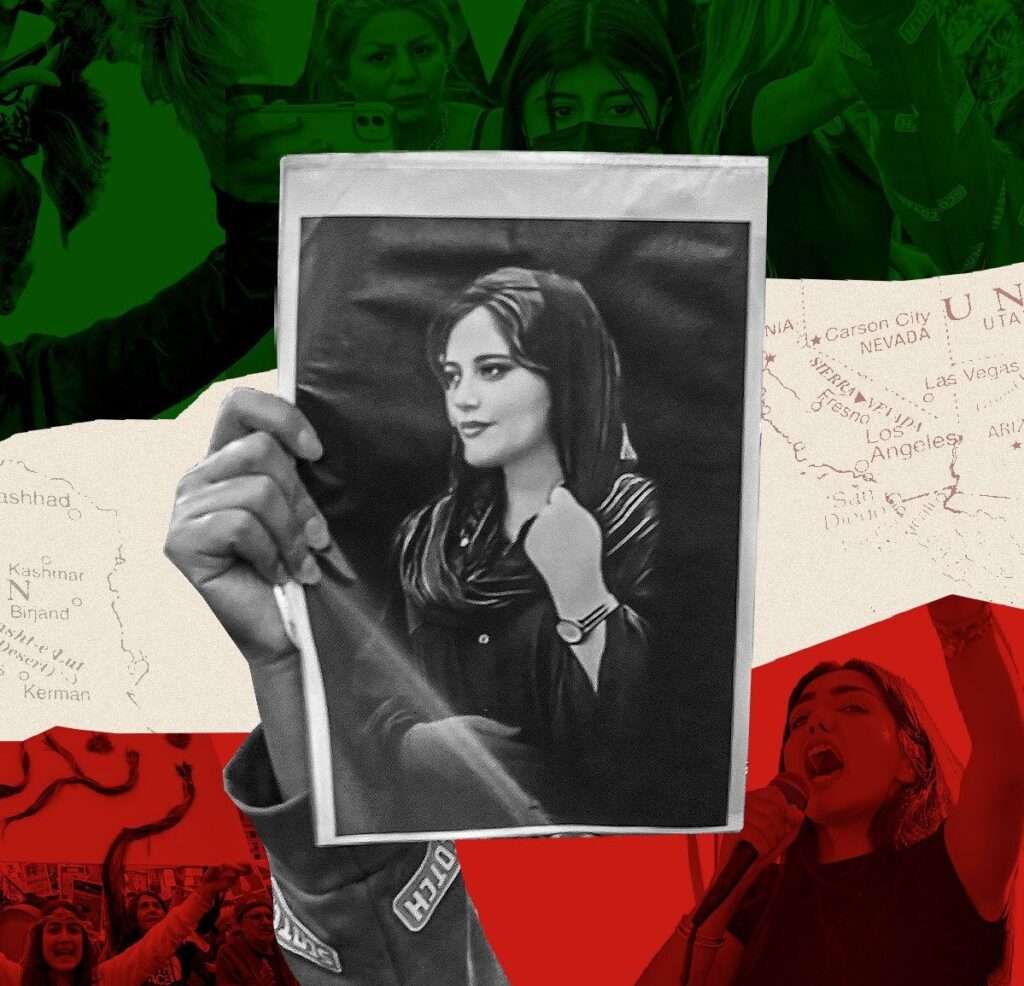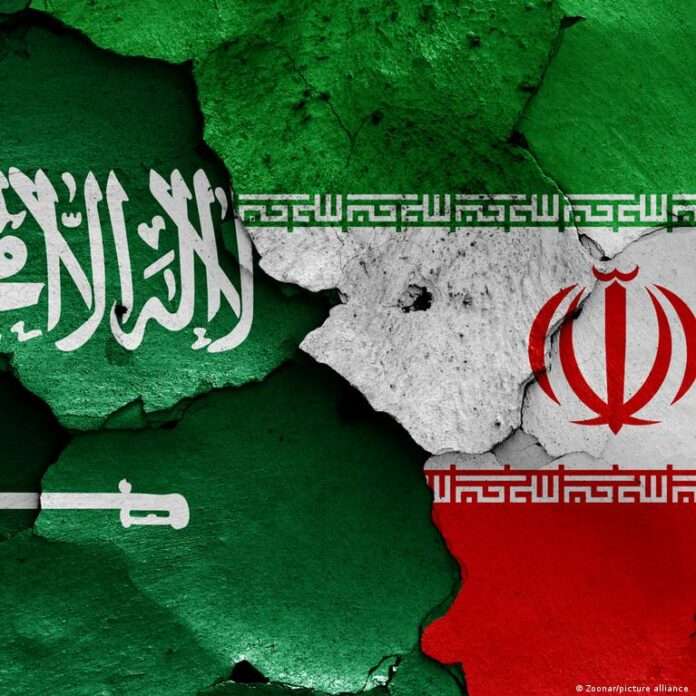As Saudi authorities gunned down more than 400 Iranian pilgrims during the occasion of Hajj in 1987, it was one of the worst scenarios to set in their bilateral relations. It was a torpedoed mosaic of bad blood interaction since then-on for years, but with only the exception that they did not go to war.
The jingoistic foreign policy of the Islamic Republic in the wake of 1979 Revolution was primarily responsible for the fissures, as it vehemently believed in exporting the revolution to Arab and Muslim states, and making use of the annual Muslim pilgrimage to propagate politics of hate against the Western powers, and their allies, was an annual offshoot of its approach.
Since then, nothing has been normal between Riyadh and Tehran as both the Muslim states not only contested for hegemony in the region and beyond, but also differed at length when it came to the texture of their belief, ideologue and practicality in their bilateralism. Two Gulf Wars (1990-91 and 2003), upheavals in the Middle East in the backdrop of the Arab Spring (2010), the 2019 drone strikes on Saudi Aramco facilities, one of the worst revulsions in Syria and Iraq, a war in Yemen and naval skirmishes in the Persian Gulf and Hormuz Straits had kept the Kingdom of Saudi Arabia and the Revolutionary Iran at loggerheads.
The only good point, and a blessing in disguise, was that they did not go to a war among themselves, but fought a proxy war tooth and nail. With so much of animosity at hand, and brewing at a faster pace, their move to reconcile under the Chinese mediation is, indeed, statesmanship. As Saudi King Salman bin Abdulaziz Al Saud extended an invitation to Iranian President Syed Ebrahim Raisi in March 2023, the first of the official invite in decades, it was a moment of joy for the doves all around. With the House of Saud hoisting the Shia jurisprudent and theologist from the Holy city of Qom, it will be a landmark to replicate in years to come. It will surely lead to scaling down of bad blood between the two greatest sects of Islam, and rekindle the hope for more inter-faith harmony which have sunk to their lowest in recent years.
There will be a lot on the platter to discuss, and at the same time much more to disagree and dissent, but the good point is that the embracing of two leaders will set in a good omen of reconciliation, and one that is earnestly desired by the Muslim world at large. To attain this moment, much proactive diplomacy has come into play in yesteryears. Apart from China, it was Oman and Iraq, other than Pakistan, who played a pivotal role in enabling both Saudi Arabia and Iran to see rationality in their ties, and desist from pushing the region into perpetual warfare.
The normalizing of relations by Riyadh with Baghdad and Damascus in recent years, despite strained relations to the core and the latter two states being proxies and allies of Iran, it was a writing on the wall that serenity has a future in one of the worst volatile regions in the world. Likewise, the tipping of ties in totality in the region as Saudi Arabia expelled Qatar from the six-member Gulf Cooperation Council, and Doha relied on the succour and support of Iran and Turkey, as well as the Chinese and Russians, it was setting in a Volte-face of ruptures.
Moreover, the war in Yemen wherein Iran made use of its Houthi rebels as a proxy to almost defeat the Saudi and the UAE prowess, had titled tables for a World War, as the United States was sitting in the wings in the region with one of its most lethal naval bases just off the coast of Qatar and Bahrain, popularly known as Centcom-Mideast. This is the time when the softies of diplomacy groomed and the Chinese played the marvelous role of building bridges. Again, for the first time in history, the adversaries were not tempted with militaristic deals, as is the case since the 100 Years War in Europe, but smartly enough Beijing sneaked deep into the establishments of Riyadh and Tehran through its economic viability, and the vision to connect the region with pipelines, trade, ports and investments. This is neo-globalization, and what can be called China-personified.
Let us glimpse through the Chinese muscles of economic penetration in the region, an aspect that enabled the Communist giant to win over both the Muslim adversary states for a deal of congeniality. China is the largest trading partner in the region with both Saudis and Iranians. The Sino-Saudi trade amounted to $87 billion in 2021, and most of it is import of crude from the Kingdom.
Whereas, Iran and China at the moment are trading to a maxim of $20 billion. The common aspect while dealing with both the states is that Beijing had granted Tehran and Riyadh the status of comprehensive strategic partners, making them the kingpins of interaction in the Mideast.
At the same time, it goes without saying that while Riyadh and Washington flirted with their deep-rooted strategic understanding and billions of defence deals, China was never off from the premise of being a strategic partner too. Whereas, in the case of Iran, China was and is a financial lifeline in the face of US ambitions of regime change in Tehran. China will be investing $400 billion in Iran over the next two decades in lieu of a steady supply of oil to fuel. The deal covers banking, telecommunications, ports, railways, health care and information technology. Under the leadership mediation of Chinese President Xi Jinping, Riyadh and Tehran have agreed to reactivate the cooperation and security agreements signed in 1998 and 2001, respectively. This does not happen in isolation. China for long has been advocating to reconfigure the regional security paradigm in the Persian Gulf. It the UN Security Council in October 2022 China presented its proposal for security and stability in the Gulf region, and argued for a multilateral effort in an endeavour to make the region an “Oasis of Security.”
What exhibits astute leadership is that all this diplomatic activity had been going on for almost a year, and that too at a higher pitch, in the backdrop of the War in Ukraine! It is, indeed, a win-win situation for the recently-launched Beijing’s Global Security Initiative, and goes on to indicate that China is never lost on diplomacy and is gearing up its muscles to tap conventional allies of the United States, and woo them towards its side.
Last but not least is the visit of Xi Jinping to Moscow on March 21, 2023 wherein he met his Russian counterpart Vladimir Putin and floated the proposal of de-escalation in Ukraine and a subsequent ceasefire. It means a bonanza for the Kremlin, as it will buy it time to solidify its gains in Ukraine, and help alter the map in the heartland of Europe. Isn’t this an indication of the Chinese rise as a superpower in the geopolitical context?
The onus of credit at the same time is due on the leadership in Riyadh and Tehran, respectively. Especially, the realization by the clergy in Iran that it is time to mend fences with Riyadh. Their resolve to re-establish full diplomatic ties, after a hiatus of almost a decade, underscores the indispensability of interdependence. The fact that decades were spent by relying on proxies, and playing to the gallery of their so called sectarian brands, had drawn a one-liner conclusion that it was self-serving, and had not helped the region and the masses at home.

The day-in and day-out revulsions witnessed in Iran, the latest of which resulted in the extra-judicial killing of a Kurd girl Mahsa Amini in September 2022, and the Palace dissent evident in Saudi Arabia that led to one of the biggest purges in the Kingdom, simply go on to make a case that their obsession to rule with vengeance has fizzled, and now is the time to open up for a dialogue and a broader breakthrough in the region.
And this is exactly what the Chinese have done, as it itself overcame one of the biggest dissents at home in the backdrop of Covid-19 restrictions and the questioning of Communist Party’s writ by the influential Petro-dollar businessmen in China. Both the Islamic states are powers to be reckoned with in the region, and it is a good omen that they have publicly announced a timeline of two months to re-open their respective embassies, and abide with a policy of non-interference in internal affairs.
It’s high time for both the giants to restart anew. Tehran must call it a day on its proxies, and the sooner it distances itself from Hezbollah and militias in Yemen and Syria, the better. Hezbollah is an indigenous reality in Lebanon and it knows its way to fight it out with Israeli transgressions. Why should Iran perpetually stick to it? It makes no sense as the regime in Tehran sits at the edges, and continues to annoy its more than 80 million populaces with sanctions and restrictions that come its way only because of its adventurous foreign policy. Similarly, the thinking in Riyadh, especially under the leadership of Crown Prince Muhammad bin Salman is that opening up Saudia is the way to go and it has made inroads.
Saudi Arabia’s new liberal policies at home, and its desire to become a hub of development by 2030 has pushed it to reconcile with Iran and Turkey, and at the same time rejuvenate the spirit of cordiality with GCC and the Arab League. It is a good omen that Saudi Arabia is shunning the prejudice against the post-1979 revolutionary state, and this will create the necessary environment to broaden peace, security and prosperity in the region and beyond.
To sum up the dividends of Saudi-Iran rapprochement, under the Chinese aegis, it will pave the way for peace in Yemen, help overcome the intransigence of the United States and Israeli designs to create rifts, bring in China as a strategic security player in the Mideast, lead to the emergence of East-oriented multipolarity, and convert the uneasy peace into an understanding of genuine congeniality that shall be institutionalized on the premise of trade, investment and renewed bilateralism.
The British author of the world-famous Harry Potter series was right as she penned, “You will never truly know yourself or the strength of your relationships until both have been tested by adversity.” This aptly sets in for Saudi-Iran reconciliation, as they come full circle.




